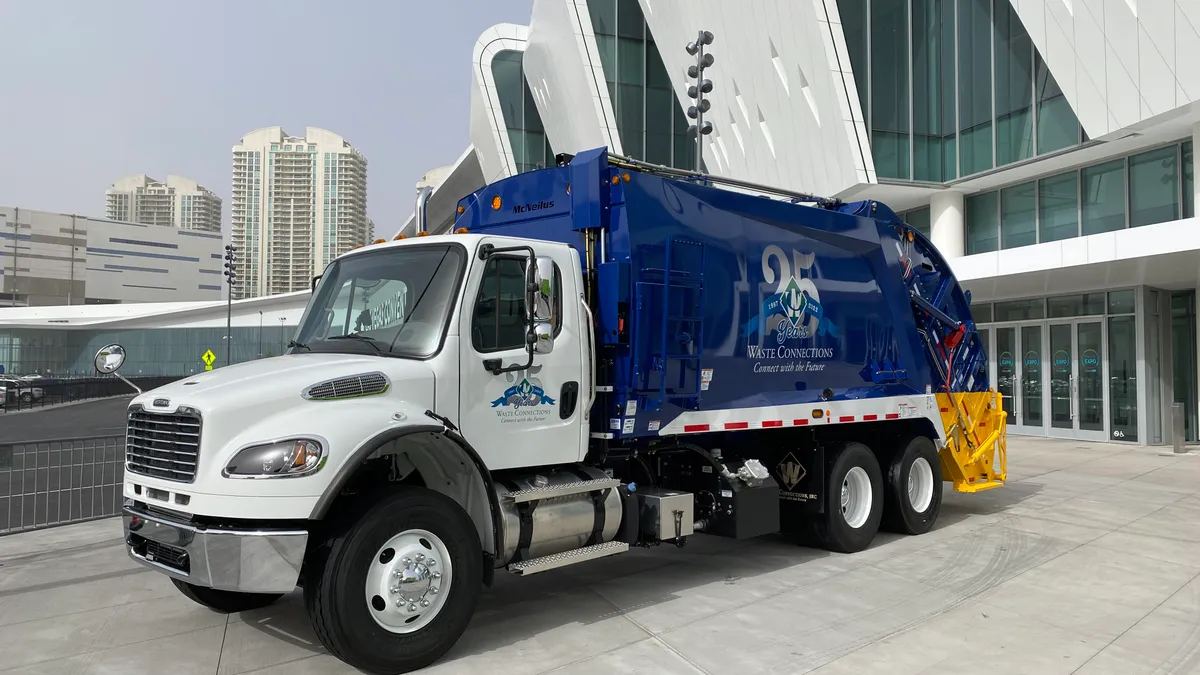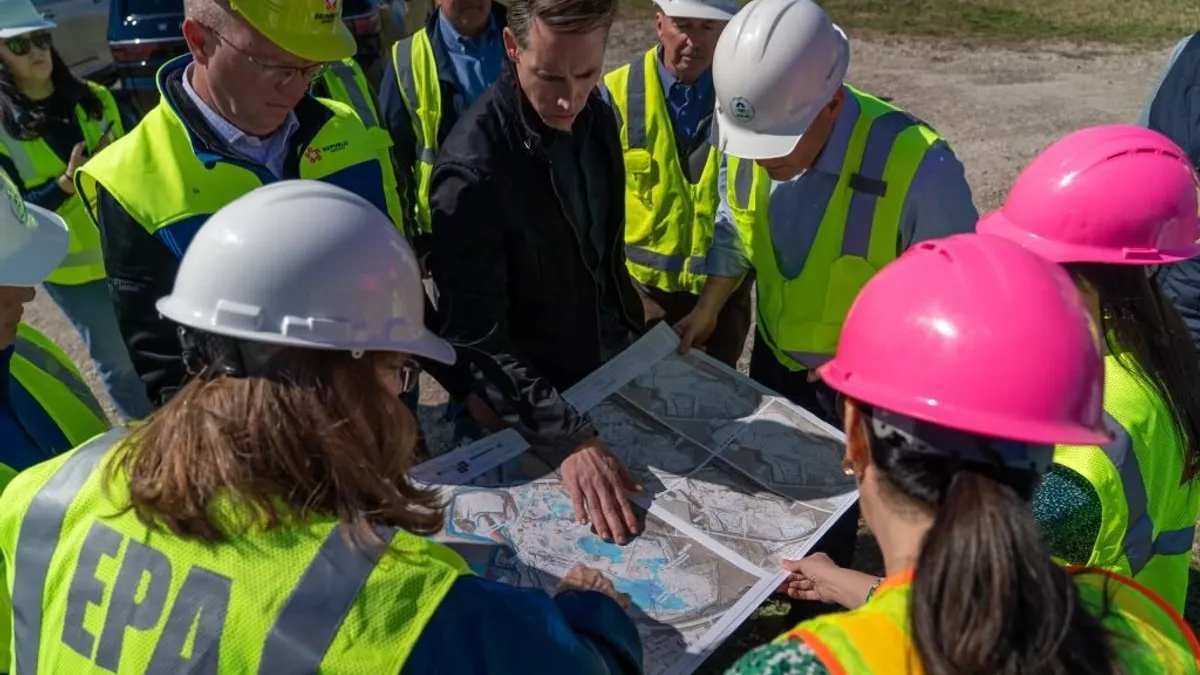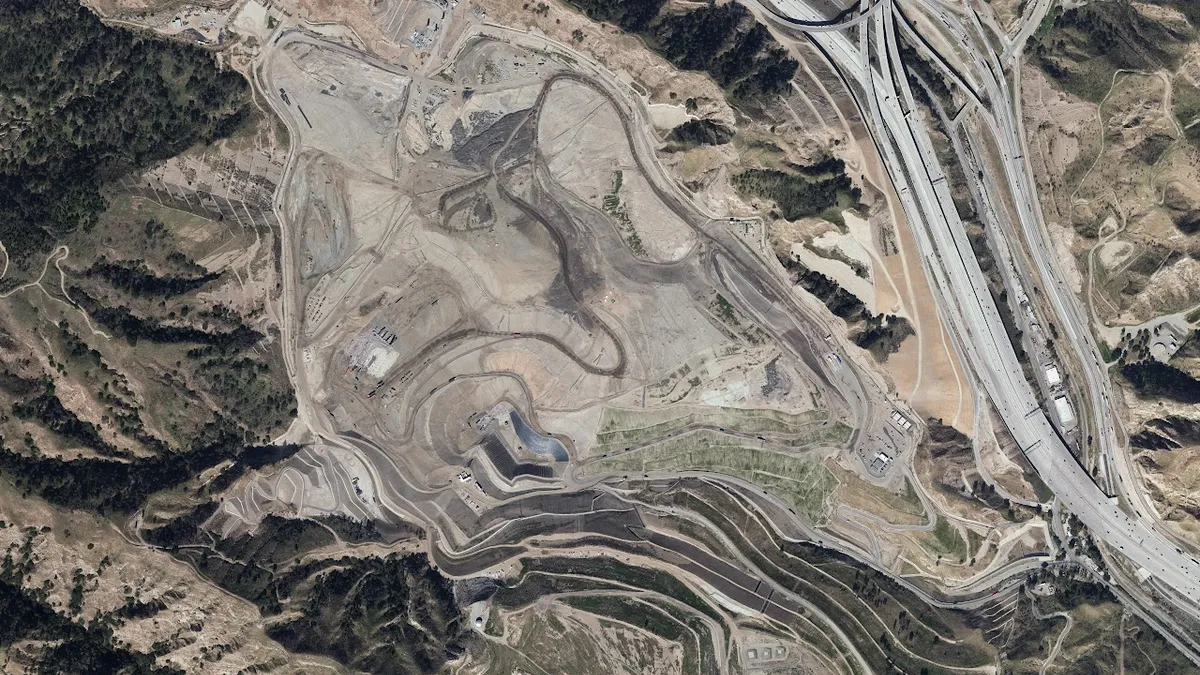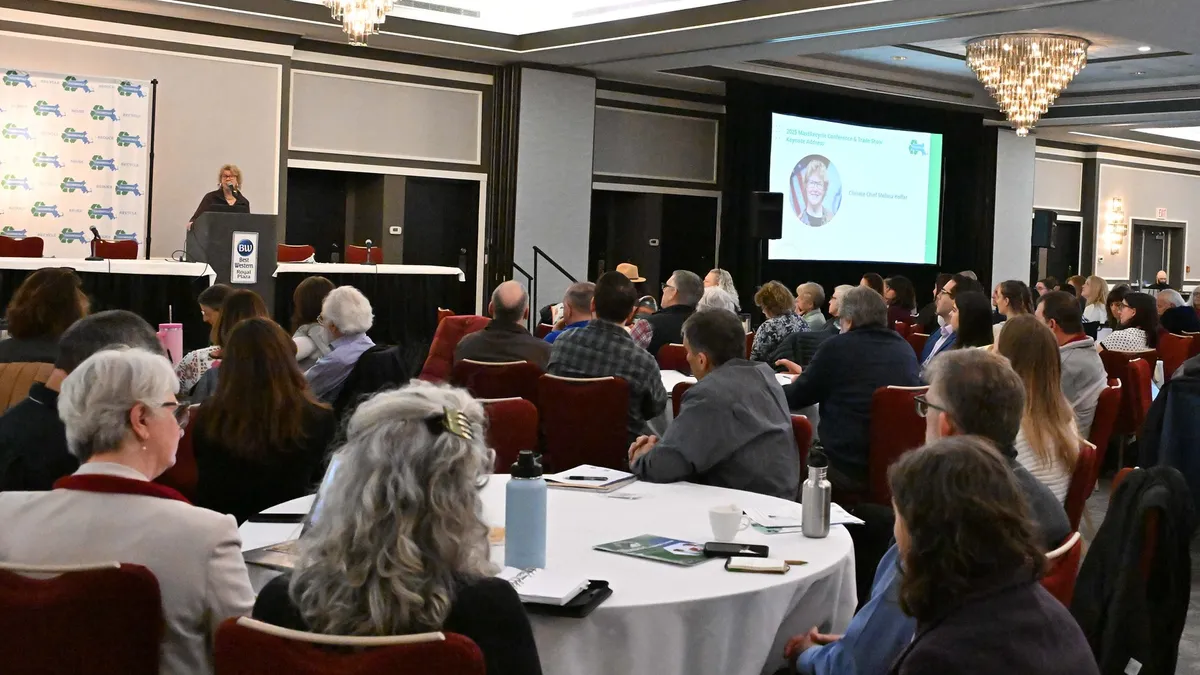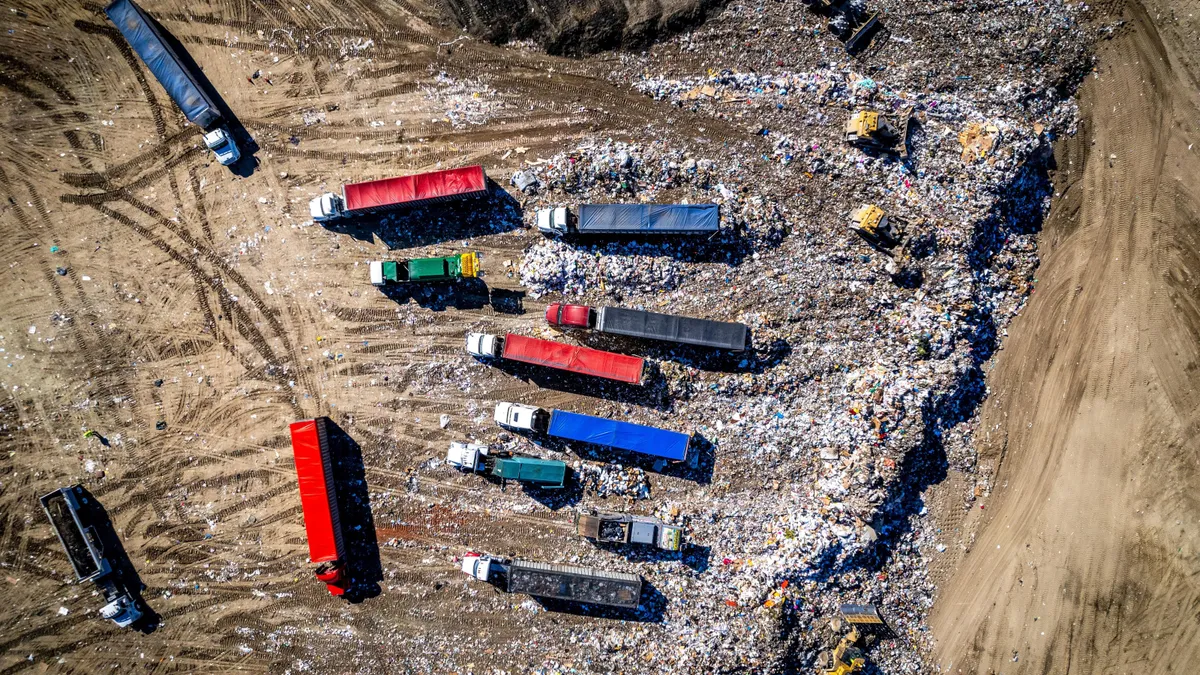Legal and regulatory challenges at several U.S. landfills have advanced this fall, along with discussions about site expansions in multiple states.
Here’s a look at some of the most notable developments in recent weeks:
Waste Connections ordered to make further changes at California site
The company’s Chiquita Canyon Landfill in California must comply with additional, stricter requirements to reduce odors that have been impacting nearby residents for at multiple years, according to local regulators.
The South Coast Air Quality Management District Hearing Board issued an Order for Abatement on Nov. 13 that will require the landfill operator to expand air monitoring efforts, reduce equipment downtime, increase community access to air quality data, and reduce “spills, leaks, and the potential for equipment failures.”
New requirements include permanently connecting landfill gas control equipment to utility power and emergency power. AQMD says downtime should not be conducted on more than three of these units at a time. It also calls for better maintenance policies that prevent future downtime at the facility.
It also prohibits overfilling leachate collection and storage tanks or liquid treatment tanks. Waste Connections will also need to submit a permit modification application to AQMD by Jan. 31 to increase the landfill’s liquid storage capacity, including tanks and equipment. It must submit another application for each hazardous and non-hazardous liquid treatment system.
Waste Connections already maintains a public website with information and updates about the landfill. AQMD now requires a public page for specific historical data such as 24-hour time-integrated canister samples, continuous hydrogen sulfide and methane monitoring data, as well as hourly dimethyl sulfide and volatile organic compounds readings for all air monitoring stations.
The Chiquita Canyon site continues to face thousands of odor complaints from residents and criticisms from some local officials. The landfill also faces numerous notices of violations from other state and local regulators. Since January 2023, the AQMD says it has received more than 25,000 complaints about odors and issued 42 public nuisance violations. Residents have tried to close the landfill, but lost a recent court battle on the issue.
The notice is the latest in a series of ongoing regulatory actions affecting the site in Castaic, California, related to odor complaints that date back years. Waste Connections said it has been working diligently to resolve the issues. In an Oct. 15 statement the company said it “fully recognizes and regrets that neighboring communities are suffering odor-related impacts” and pointed out that it had provided about 1,700 air purifiers for local residents, as well as carbon filtration devices for schools in the region.
Waste Connections has also raised concerns with Los Angeles County officials that a 2022 settlement agreement with the county, which is pending approval, won’t be implemented. Jim Little, the company’s executive vice president of engineering and disposal, said in an October letter that this could cause Chiquita Canyon to close and create major waste management and logistics issues in the region.
Waste Connections says the terms of its old conditional use permit from 2017 would cut landfill capacity in half starting in January, but a 2022 settlement agreement had allowed for Waste Connections to accept a “gradual step-down of tonnage” in exchange for closing the landfill five years early.
If that settlement falls through, it would “cause cascading and permanent damages to the solid waste collection and management infrastructure” for millions of residents. About one million tons of waste would need to be diverted to other places, which would involve greater costs for haulers and contribute to air emissions, executives said in the letter.
Waste Connections says few local landfills could handle that amount of waste, noting the January 2024 closure of the Southeast Resource Recovery Facility in Long Beach, a waste-to-energy facility that processed more than 380,000 tons of waste a year. The Olinda Alpha Landfill in Orange County is expected to close in December 2025, according to the letter.
Maine DEP sued over landfill expansion
The Penobscot Nation and the Conservation Law Foundation have filed an appeal against the Maine Department of Environmental Protection in an effort to stop the expansion of Juniper Ridge, a state-owned landfill operated by Casella Waste Systems.
The suit comes after Maine DEP issued a favorable public benefit determination last month. That ruling, which says the project is necessary to meet state capacity needs, was required for Casella to move forward with expansion plans.
The landfill project has long been the subject of scrutiny from residents and advocacy groups that say the expansion will harm the environment. CLF and the Penobscot Nation argue in their appeal that the Maine DEP’s decision was “unsupported by substantial evidence.” They say that the expansion would harm communities in Penobscot County that are considered disadvantaged and already face pollution from other sources, according to U.S. EPA data.
Penobscot tribal leaders say the facility has released chemicals into the Penobscot River, a waterway they consider sacred.
“The continued contamination from this landfill endangers that legacy and puts the health of our community at risk. We are firmly opposing this harmful expansion to protect our water, environment, and history for future generations of the Penobscot Nation," said Penobscot Tribal Chief Kirk Francis in a statement.
Jeff Weld, Casella’s vice president of communications, said the appeal has caused the spread of “false narratives” about the landfill’s operations. “Casella has operated the Juniper Ridge Landfill on behalf of the State of Maine for 20 years with zero violations of state or federal regulations,” he said in an email.
Maine DEP’s ruling says the project is “not inconsistent with ensuring environmental justice for the community” as long as Casella agrees to several operational actions, such as managing PFAS in leachate and hiring third-party consultants to conduct an odor analysis. DEP has said it is not able to comment on pending litigation.
Juniper Ridge could expand by 61 acres, which would add 11.9 million cubic yards of additional capacity. The landfill is currently projected to reach capacity in 2028 and this could extend its lifespan by 11 years.
Technology spotlight
The county plans to use the energy generated to power a wastewater treatment system that will screen for PFAS. The site currently treats upward of 6 million gallons of leachate per year. The new treatment system is targeted to open in 2026.
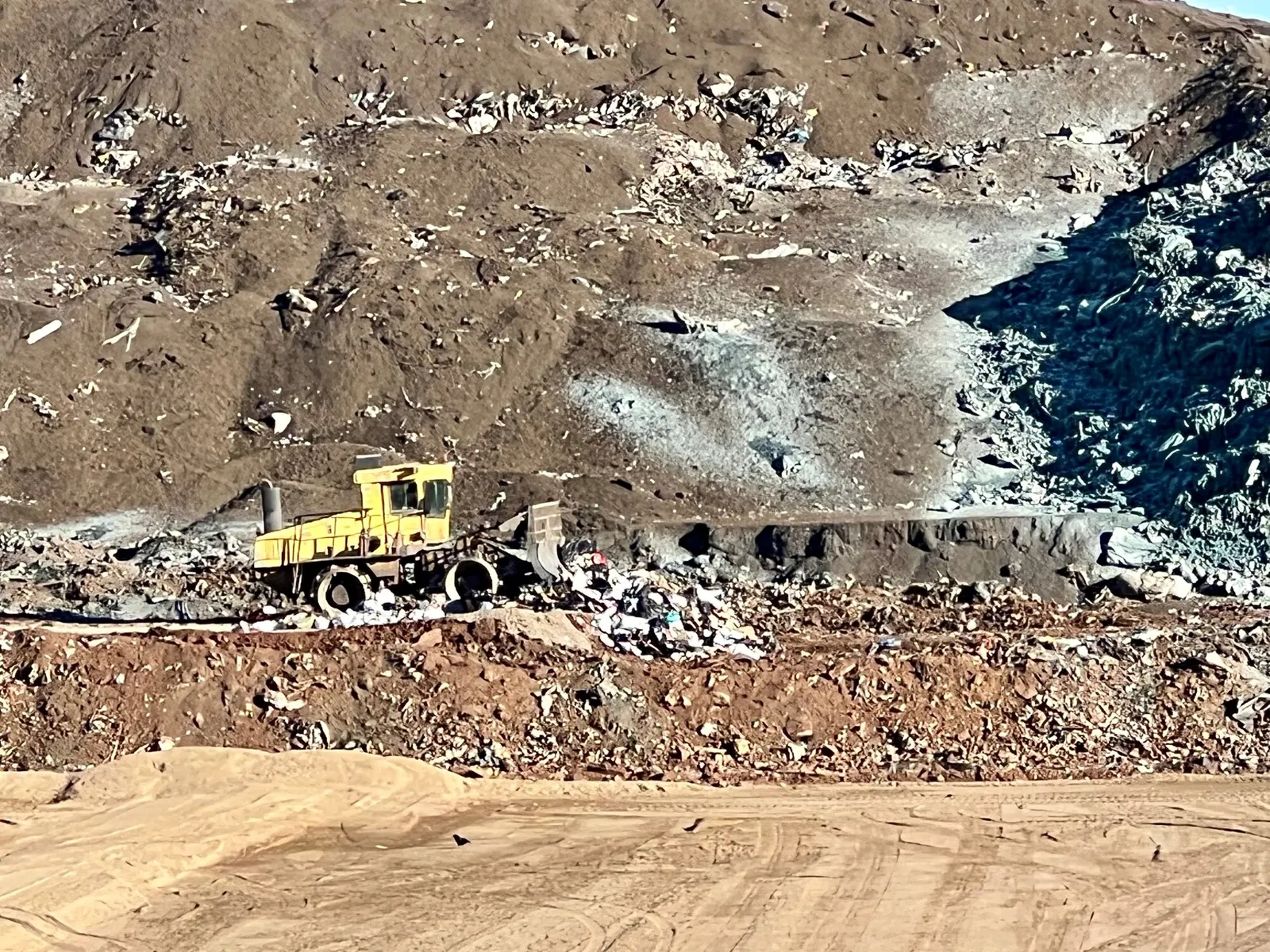
Other news
- The Broward County Commission in Florida delayed a decision until January about whether to allow an expansion of WM’s Monarch Hills Landfill. Some residents in Coconut Creek are opposed, though a recent hearing also raised the possibility of double-digit percentage collection rate increases if the site shuts down. (TAPinto Coral Springs)
- Shawnee, Kansas, recently extended WM’s special use permit by one year for the Johnson County Landfill. Extensions are typically for longer periods, but the landfill operator is still working to address issues related to odors and flaring. (Johnson County Post)
- The Missouri Department of Natural Resources denied a preliminary proposal by Cards Recycling to site a landfill near Granby, though an appeal is possible. (KSN)
- The Maryland Department of Environment recently denied a permit request by Halle Cos. to build a 9.3-million-cubic-yard landfill, citing public health concerns. (WMAR)
- LFOD Northwoods has been talking with New Hampshire regulators about potentially acquiring and reopening the closed Dummer Yard Landfill. The 100-acre landfill, previously used for paper production waste, shut down in 1997 and has not been regularly maintained. LFOD is a joint venture between W. L. French Excavating Corp. and North-South Construction Services. (The Berlin Sun)
- Maui County, Hawai’i, entered into a conditional agreement with a subsidiary of construction company Nan to acquire nearly 80 acres of land adjacent to the Central Maui Landfill for $4 million. The additional land would be used for debris from the 2023 Lahaina wildfires. (Maui Now)




